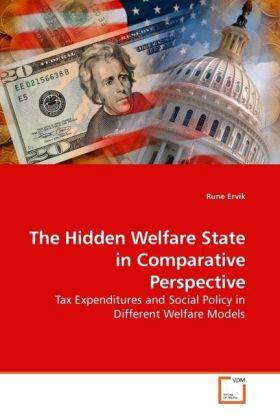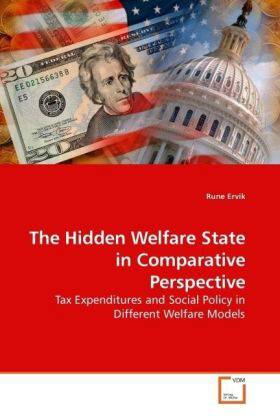
- Afhalen na 1 uur in een winkel met voorraad
- Gratis thuislevering in België vanaf € 30
- Ruim aanbod met 7 miljoen producten
- Afhalen na 1 uur in een winkel met voorraad
- Gratis thuislevering in België vanaf € 30
- Ruim aanbod met 7 miljoen producten
Zoeken
The Hidden Welfare State in Comparative Perspective
Tax Expenditures and Social Policy in Different Welfare Models
Rune Ervik
Paperback | Engels
€ 77,95
+ 155 punten
Omschrijving
The tax system constitutes a major part of the concept and reality of the welfare state. It generates revenues for financing public expenditures on welfare and is a welfare institution that redistributes economic resources. In addition, through arrangements in the form of untaxed income and transfers, low tax rates or value assessment, income deductions and tax deductions, the state uses the tax system to stimulate positive actions or to compensate for certain burdens in order to achieve, among other ends, the goals set by social and welfare policies. Such fiscal welfare arrangements as Richard M. Titmuss once coined them represent expenditures of the public in the form of tax expenditures. In contrast to other public expenditures, tax expenditures are seldom on the agenda of public debate and have commanded little attention within research, especially in a comparative perspective. This book seeks to counter this state of affairs, by providing a historical and comparative perspective on fiscal welfare in eight countries. It will be of interest to students of the welfare state with an interest in welfare typologies, redistribution and the framing of social policy discourses.
Specificaties
Betrokkenen
- Auteur(s):
- Uitgeverij:
Inhoud
- Aantal bladzijden:
- 308
- Taal:
- Engels
Eigenschappen
- Productcode (EAN):
- 9783639193527
- Uitvoering:
- Paperback
- Afmetingen:
- 163 mm x 227 mm
- Gewicht:
- 420 g

Alleen bij Standaard Boekhandel
+ 155 punten op je klantenkaart van Standaard Boekhandel
Beoordelingen
We publiceren alleen reviews die voldoen aan de voorwaarden voor reviews. Bekijk onze voorwaarden voor reviews.











